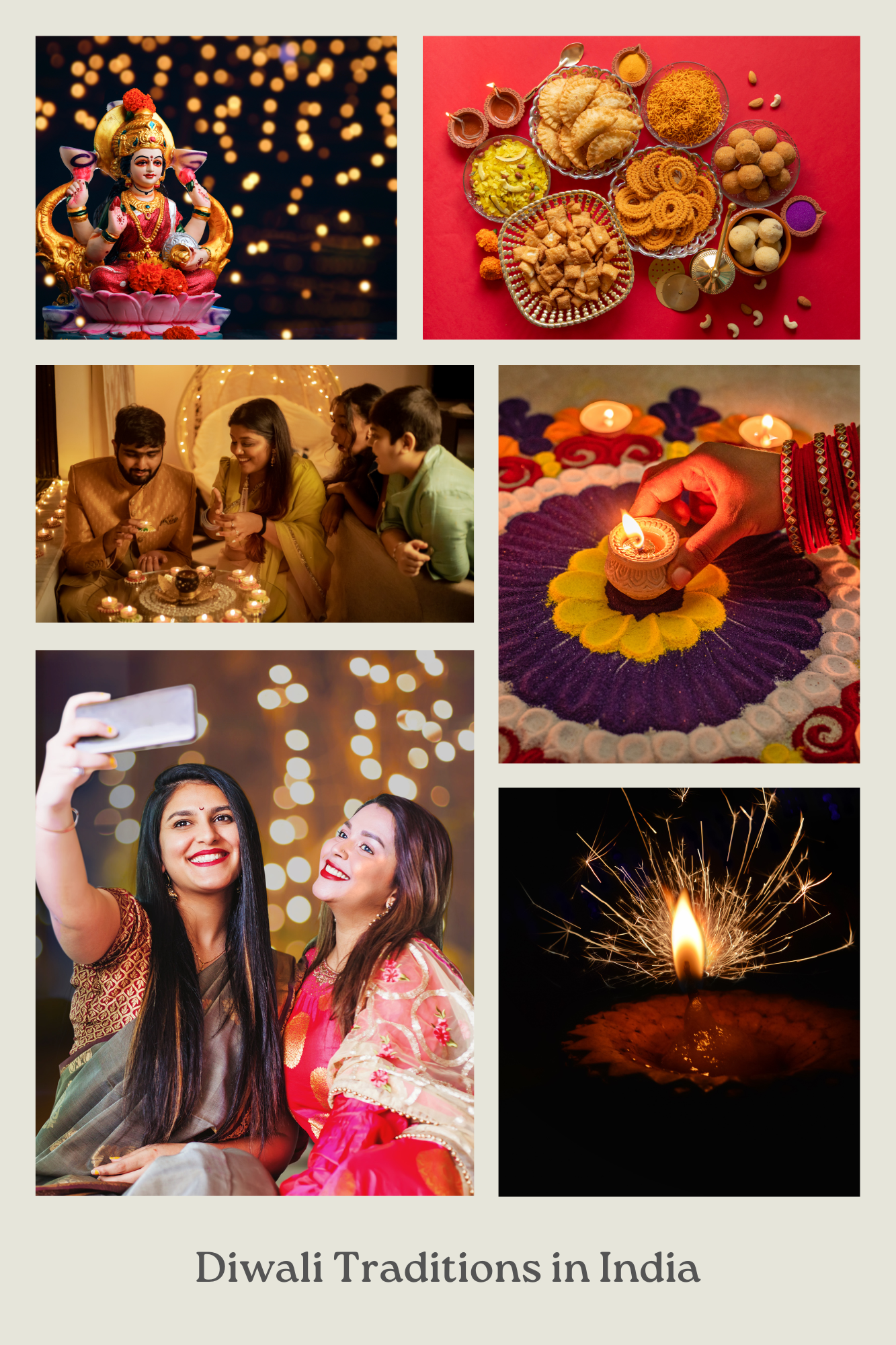
Diwali Traditions in India
Diwali, the Festival of Lights, holds a special place in the hearts of millions across India. It is not merely a celebration; it is a bonding of historical threads, passion and cultural richness. Let’s dive into the Traditions of Diwali:
Introduction
Diwali, also known as Deepavali, signifies the triumph of light over darkness and good over evil. Celebrated by different religions, this festival unites communities in a vibrant display of tradition and festivity.
Religious Significance
Diwali is associated with various Hindu deities, each contributing to the festival’s spirituality. The stories of Lord Rama, Lord Krishna, and Goddess Lakshmi fills Diwali with a rich mythological importance.
Diwali Calendar and Date Significance
Diwali’s date varies each year, aligning with the lunar calendar. The festival starts with a series of ritual days before the grand celebration night. Each day holds a unique significance, bringing hope and devotion.
Pre-Diwali Preparations
The weeks leading up to Diwali witness a swirl of activities as households undergo a thorough cleaning, symbolizing the removal of negativity and welcoming positivity. The decoration and renovation of homes create an atmosphere of joy and hope.
Traditional Diwali Foods
No Diwali celebration is complete without variety of sweets and culinary. The culinary traditions vary across regions, offering a delicious insight into the diverse flavors of India.
Clothing and Fashion Trends
Diwali is not just a feast for the taste buds but also a treat for the eyes. Traditional attire takes centre stage, with a modern twist reflecting the blend of heritage and up-to-date fashion.
Rangoli Artistry
The art of rangoli holds cultural significance during Diwali. Elaborate patterns and vibrant colors enhance the entrances of homes, symbolizing a warm welcome for guests and prosperity for the household.
Lakshmi Puja and Wealth Worship
The worship of Goddess Lakshmi, the bestower of wealth and prosperity, is a major aspect of Diwali. Customs associated with wealth worship are also observed.
Lighting the Diyas and Lamps
The illumination of diyas and lamps holds deep symbolism, representing the removal of darkness and the victory of light. Each sparkling flame is a witness to hope and positivity.
Fireworks Extravaganza
Fireworks add a spectacle to Diwali, symbolizing the victory of good over evil. However, evolving viewpoints on environmental concerns encourage a more environment friendly approach to celebrate Diwali.
Gift-Giving Tradition
Exchanging gifts during Diwali is a time-honored tradition. The gesture of giving reflects love, warmth, and a sense of community.
Family and Community Bonding
Diwali is a time for families to come together, strengthening bonds through shared traditions. Community celebrations, social gatherings, and festive feasts create a sense of unity and joy.
Environmental Awareness Campaigns
As environmental concerns grow, so does the need for eco-friendly celebrations. Initiatives that are promoting green Diwali practices to make a balance between tradition and environmental awareness.
Conclusion
As we conclude the exploration of Diwali traditions in India, it becomes evident that the festival is not just a celebration; it is a reflection of the nation’s rich cultural heritage. Diwali lies in its ability to adapt while preserving the values that make it a cherished part of Indian heritage. In the glow of diyas and the warmth of traditions, Diwali continues to weave a story of unity, joy, and the enduring spirit of light.
